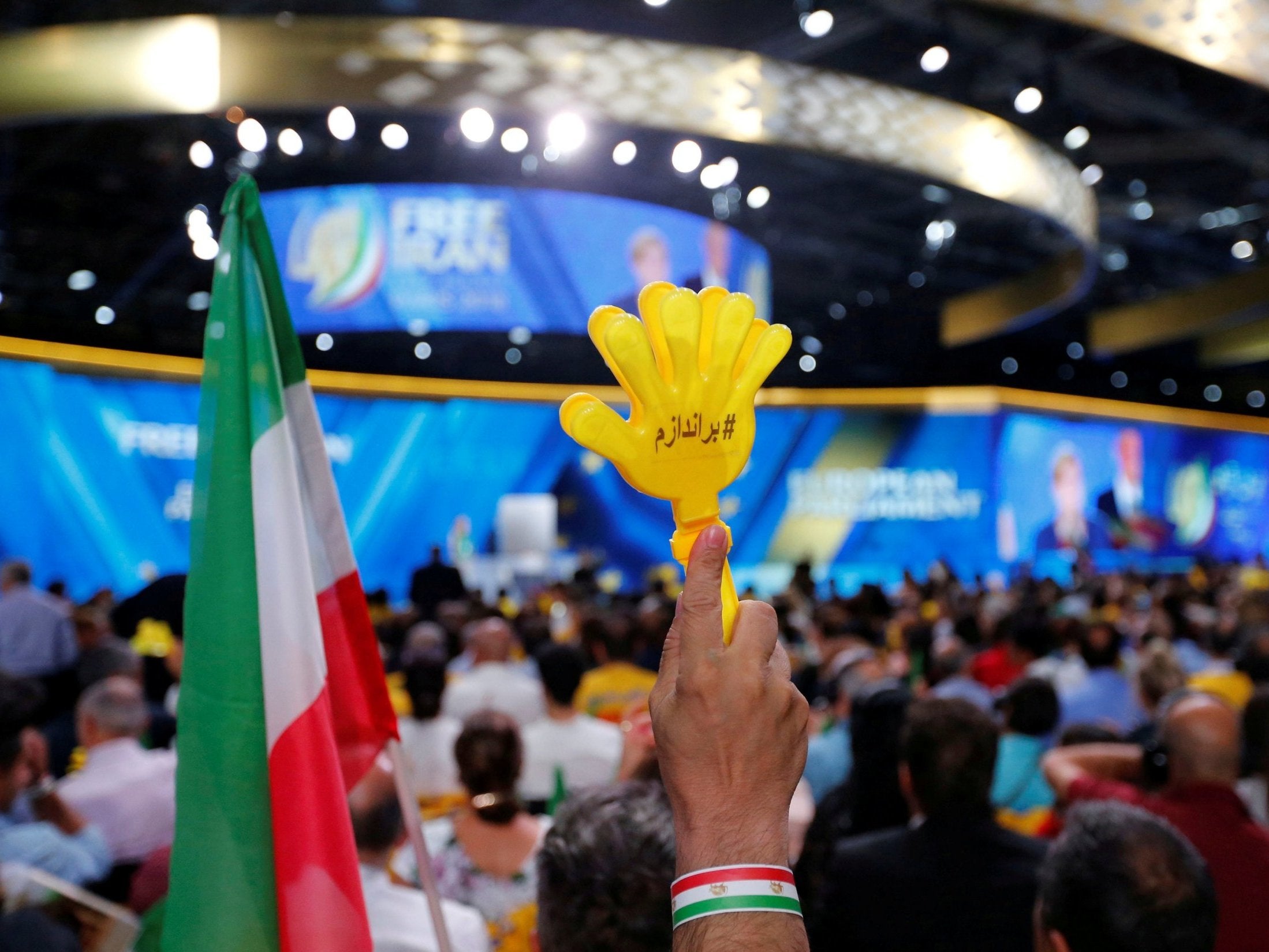‘A message to Iran’s deep state’: France names Tehran’s spy service in plot to bomb meeting of exiles
Analysis: French authorities also cracked down on a Shia cultural centre in the north with apparent pro-Iranian leanings, in what is a long, ongoing shadow war between Iranian and western intelligence services. Borzou Daragahi reports


France seized the assets of two Iranian officials on Tuesday in response to what western officials described a terror plot earlier this year that targeted a meeting of Iranian exiles and US officials in a Paris suburb.
Early on Tuesday, French police commandos also raided a Shia Muslim cultural centre in the port city of Dunkirk, seized illegal weapons, and arrested three leaders of the facility in a move that may also been an attempt to stymie Iranian operations in Europe.
While officials declined to make a direct connection between the Zahra centre arrests and the alleged terrorism plot, Iranian authorities often use cultural venues to spread influence and draw recruits. The website of the cultural centre includes a speech by Hassan Nasrallah, leader of the Iranian-backed Lebanese Shia group Hezbollah.
France announced that its spy services had concluded that a department within Iran’s ministry of intelligence and security, which answers to supreme leader Ayatollah Ali Khamenei, was behind the thwarted attack, and named deputy intelligence minister Saeid Hashemi Moghadam as the official who ordered the operation.
“This extremely grave act planned on our territory could not go unanswered,” said a statement posted on the website of France’s interior ministry. “France has taken targeted and proportionate preventive measures.”
One French official, speaking to The Independent on condition of anonymity, called France’s action “a message to Iran’s deep state”.
The official warned that other measures might also be taken, depending on Iran’s response. “We want to be gradual,” the official said. “Yes, you can also get tougher.”
Iran has denied involvement in the alleged plot, describing it as a false-flag operation by the fringe exile group that was allegedly targeted. Iran’s foreign ministry spokesman, Bahram Ghassemi, on Tuesday condemned France for allowing “extremist movements that are of a terrorist nature, albeit small and worthless, in order to protect the principle of freedom of expression”.
The affair is part of a long, ongoing shadow war between Iranian and western intelligence services. The west is struggling to discern the course of the leadership in Tehran, monitor and curtail its nuclear and missiles programmes, and gauge the magnitude of protests over economic matters. Iran is enraged that western nations continue to host exile organisations, personalities, and media outlets, and has sought to undermine them.
But French officials, labouring to keep the nuclear deal alive after the US withdrew in May, have said the plot to carry out a bombing on French soil suggested a new level of Iranian brazenness.
Despite public efforts by French president Emmanuel Macron to uphold the nuclear deal and create a mechanism by which to continue to conduct business with Iran after US financial restrictions tighten next month, the matter has cooled relations between Tehran and Paris, which has yet to name a new ambassador to Iran and has reportedly curtailed non-essential travel to the Islamic Republic by French officials.
The alleged plot became public on 1 July with the reported arrest in Germany of a Vienna-based Iranian diplomat, Assadolah Asadi, and a Belgian-Iranian couple, who were detained near Brussels. Mr Asadi allegedly handed the couple half a kilogram of plastic explosives to use against a 30 June gathering in the Paris suburb of Villepinte of the People’s Mujahedin Organisation of Iran, known by the initials MEK. US president Donald Trump’s lawyer, Rudolph Giuliani, and soon-to-be-named national security adviser, John Bolton, as well as numerous European and Arab officials and luminaries were also in attendance.
The measures announced so far against Iran include freezing any assets of Mr Hashemi Moghadam and Mr Asadi as well as the associated department of Iran’s Ministry of Intelligence. Mr Asadi and the couple remain under arrest.
France appears to be unsure whether Iran’s president, Hassan Rouhani, had anything to do with the plot, and there is concern that too punishing a response might have undermined him and empowered hardliners who control the country’s national security apparatus. “So far the consequences have been very mild, but we’re talking about an ongoing discussion,” said David Khalfa, a French researcher specialising in Iran-France relations.
Although many large French firms have shied away from Iran for fear of sanctions, Mr Khalfa noted that hundreds of small- and medium-sized French businesses have set up shop in Iran, giving France an incentive to maintain ties, and leverage to shape policy in Tehran. “The influence of France is limited. Paris is a driving force in the EU to save the JCPOA so continuing the dialogue is very important for Macron. He is trying to find a middle way but the seriousness of the charges will harden the strategic dialogue between the two countries.”
“This dialogue was already complicated these last months because of the strong disagreements between Paris and Tehran on Iran’s influence in the Middle East and its ballistic missile programme.”
But the French are also growing impatient with the self-described moderates in Tehran. They lament what they call Mr Rouhani’s unwillingness to curtail or confront Iran’s deployment of militias in Syria and Iraq, support for Houthi rebels fighting the UN-recognised government of Yemen, and its ballistic missile programme. “Rouhani is weakening himself by not moving on any regional file,” said the French official.
Join our commenting forum
Join thought-provoking conversations, follow other Independent readers and see their replies
Comments